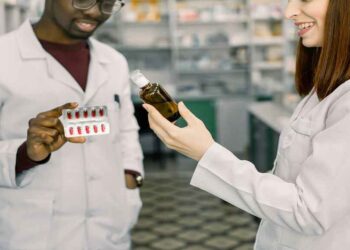The World Health Organization has urged regulators, suppliers, as well as medicine manufacturers to take strict steps against medicines in the supply chain that are contaminated. This is due to the recent instances of over-the-counter cough syrups which had a high level of ethylene glycol and diethylene glycol.
In the past 4 months, there have been cases from at least 7 countries that have been associated, with fatalities touching 300 in three of them. Most happen to be young children who were under the age of 5.
DEG as well as EG happen to be toxic chemicals that are mostly used as industrial solvents and antifreeze agents. Apparently, they should never be found in medicines, as they can be fatal to humans.
Because of this, the medical product alerts by the WHO were quickly sent across to the national health authorities across all 194 WHO member states, thereby requesting-
- Identifying and removing such contaminated medicines from getting circulated in the market.
- Enhanced diligence as well as surveillance across the supply chain of regions and the countries that are likely to be affected.
- Immediately notifying WHO if these substandard components in the product are found out and also inform citizens of dangers and toxic implications of them.
To keep a check on the dissemination of contaminated drugs, the WHO calls on
Drug manufacturers to-
- Only buy pharmaceutical-grade excipients from qualified suppliers in the supply chain.
- Get into thorough testing after receiving the supplies.
- Give out product quality assurance that includes certificates of examination based on the required testing results.
- Keep a precision-led record of material purchase, its testing and manufacturing as well as distribution in order to help in future traceability in case of incident investigations.
Suppliers as well as distributors of medical products to-
- Always look for falsification signs and physical medicine conditions, and also other products that they distribute or sell.
- Only sell or distribute medicines that are authorised by competent authorities.
- Maintain a proper and precise record of the medicines as well as their distribution.
- Involve competent personnel to take care of medicines and also give out public advice on the medicines’ right use.
It is well to be noted that the WHO has said that it will continue to engage with member state mechanism as far as falsified and substandard medical products are concerned in putting to practice its mandate to roll out effective partnership in preventing, identifying, and also responding to such products in order to save lives.



















